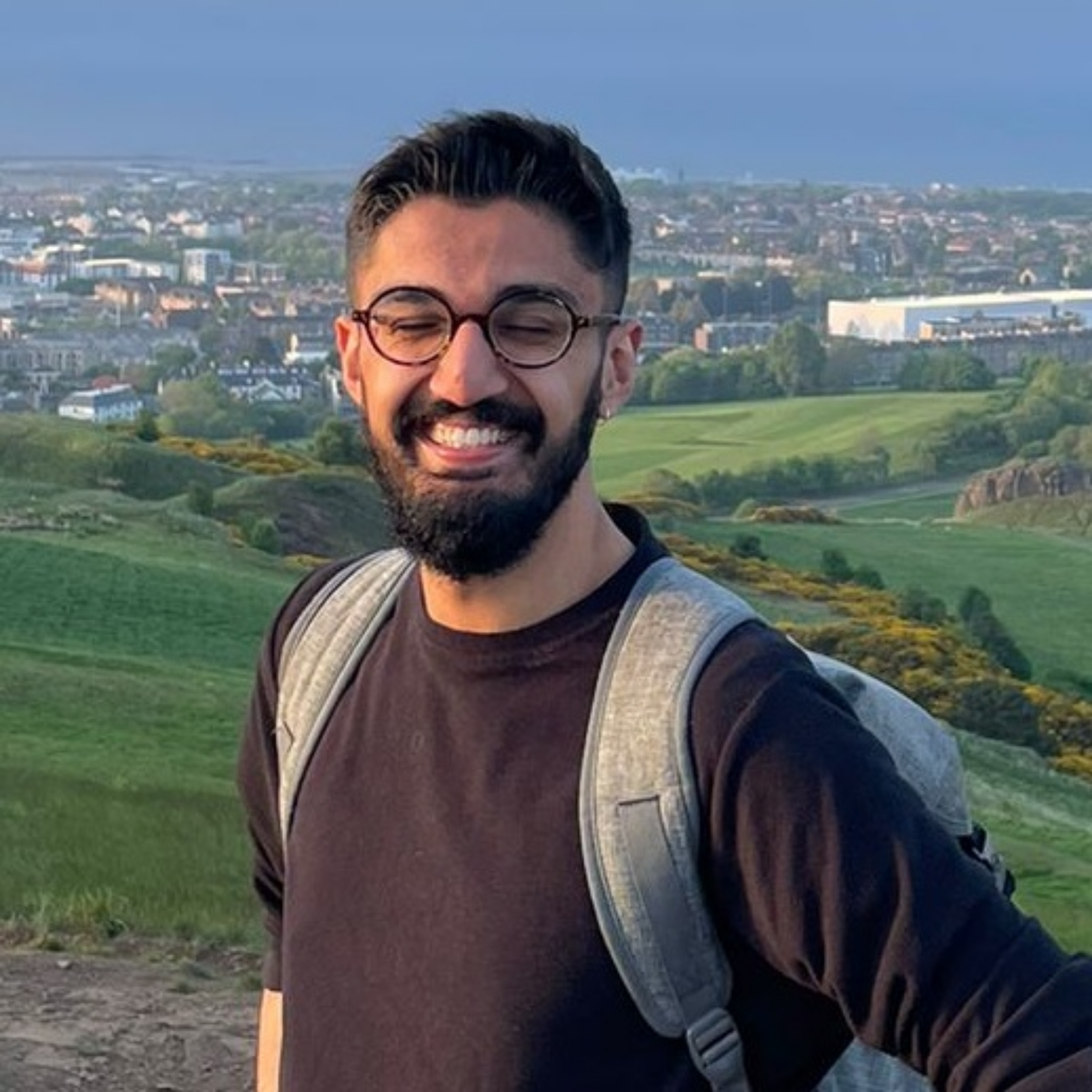
MEarthSci Earth Sciences, University of Oxford
Tropical Meteorology PhD student, University of Leeds
I grew up in suburban Birmingham, where my parents, who are originally from Pakistan, moved in the late 70s/early 80s. My parents always underestimate their intelligence and shift focus away from their academic successes, especially given the language barrier when they first came to the UK. Regardless, they have ensured myself and my older siblings all got the best education, and that we could succeed in whatever discipline we wished to go into. We’re all so grateful for this – now they have three doctors and one doctor in the works (who was also taught to play classical and jazz guitar…thankfully not another Ed Sheeran wannabe)!
I had no real knowledge on degrees in the geosciences until I got to sixth form, though my older sister did a geology degree, so I got a glimpse of what goes on. My form tutor, who was my geography teacher for 6 out of the 7 years I was at school, also studied geology (I think?) and given I enjoyed physical geography, maths and science, and how these various subjects work together in understanding Earth processes, he assisted me in finding a route to the correct degree. I ended up studying an integrated Master’s degree in Earth Sciences at the University of Oxford from 2017 to 2021. Who would’ve known I would have found a degree that covers all of my academic interests…thanks Mr Jackson!
The best think about studying geosciences is the sheer breadth of the field – all of the topics you cover are somehow linked, even if extremely tenuous! I’ve studied things like ocean physics, volcanic and seismic hazard, deep Earth structure, past climates…the list goes on. And the field trips! I’ve been around the UK to look at the local- to regional-scale geology, as well as completing an independent geological mapping project in sunny Sardinia. The pandemic unfortunately meant my field trips to Almeria in Spain and Bermuda were cancelled but to have those many opportunities to go around the world during one degree is such an amazing thing to have been given.
I’m currently in my first year of a PhD in tropical meteorology at the University of Leeds. I’m funded by NERC (Natural Environment Research Council) through the SENSE CDT, where CDT standards for ‘Centre for Doctoral Training’. It’s weird how I stumbled upon meteorology, given it wasn’t really covered in my undergrad degree. The beauty of geosciences, however, is that a lot of knowledge is transferable to other fields. I really enjoyed learning about physical oceanography and dynamics of the Earth’s mantle – a lot of the physics that goes on here can be applied to the atmosphere! I did a studentship over the summer after my 3rd year with Dr Neil Hart at the School of Geography and the Environment in Oxford funded by the Met Office Academic Partnership which ended up being my final year research project. The focus was to understand biases in climate models for African meteorology by analysing tropical storms in the region. Even though this was the first true taster I had of meteorology, I knew this field was for me.
Now, my PhD research involves investigating the links between the tropics and higher latitudes in regulating the variability in extreme rainfall over Southeast Asia. I use a mixture of satellite, radar and reanalysis data to try to better realise these processes, which are currently not well understood in this region. The hope is that my research will assist in identifying the reasons for current biases in precipitation modelling and forecasting over the region, and whether such tropical-extratropical interactions impact our ability to predict rainfall. This is incredibly important given the region experiences intense rainfall all-year round, which can cause detriment through flooding and landslides. I’ve really enjoyed the start of my PhD – I’ve been able to conduct independent research but also to be directed by world-leading scientists, present work at seminars/conferences, get involved in outreach projects with fellow students, and even teach/demonstrate on undergraduate courses! I’ll also get to do work with the Met Office later on, which will give me further knowledge on other career paths, while deviating not too far from the science that I love.
Anyone thinking of studying geosciences or geography should know that there will be something within the degree programmes that will suit you. The diversity in the topics means you have so many options and paths to choose. Asking questions at any possible opportunity will also help you go far, while also giving you more confidence in yourself. As someone who would always shy away at the start, I had to come out of my shell, though still worrying it would be dumb to ask them – there’s no such thing as a stupid question!
Balancing every aspect of my identity in a subject that is historically not that diverse, especially at a researcher level, has been a challenge, but you shouldn’t have to hold any of it back. Being of minority ethnicity, neurodivergent and under the LGBTQ+ umbrella gives me a whole crockpot of things to deal with – though people around me are genuinely curious to hear what’s on my mind, just so they can support me when I need it most! Remember though that you don’t have to explain yourself. Don’t feel you need to pressure yourself to do things, and make sure you do what gives you the most comfort. Whatever path you’re taking, you’re going to ace it!
Watch an interview with Ashar about his journey below!